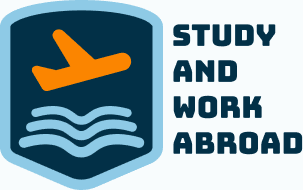Call Us:+91-9920234749, +91-9833420909 info@studyandworkabroad.in

Choosing the Right Study Program: Degree vs. Exchange vs. Language Courses
Are you torn between pursuing a degree, going on an exchange program, or taking up language courses? Choosing the right study program can have a significant impact on your educational journey and future career prospects. In this article, we will explore the differences between degree programs, exchange programs, and language courses to help you make an informed decision.
When it comes to obtaining a degree, you will delve deep into a specific subject area over a more extended period. This option offers in-depth knowledge, academic credentials, and a structured curriculum to develop a specialized skill set. On the other hand, exchange programs provide an opportunity to study in a foreign country, immerse yourself in a new culture, and broaden your horizons. This experience offers personal growth, language fluency, and an international network that can be invaluable in today’s globalized world. Language courses, meanwhile, allow you to focus solely on improving your language skills. Whether it’s for career advancement, travel, or personal fulfillment, language courses provide intensive training to help you become proficient in a new language.
So, let’s dive into the nuances of each study program and discover which one aligns best with your goals and aspirations.
Degree Programs: Pros and Cons
A degree program involves pursuing a Bachelor’s, Master’s, or Ph.D. degree in a specific field of study. Here are some pros and cons to consider:
Pros:
Specialized knowledge: Degree programs offer in-depth study in a chosen field, providing expertise and skills relevant to your career goals.
Academic credentials: Obtaining a degree enhances your credibility and qualifications, opening doors to better job opportunities and higher salaries.
Structured curriculum: Degree programs provide a structured learning environment with clear goals and milestones to achieve.
Research opportunities: Many degree programs offer opportunities for research, allowing students to contribute to their field and gain valuable experience.
Cons:
Time commitment: Degree programs require a significant time investment, typically spanning several years for undergraduate and graduate studies.
Cost: Pursuing a degree can be expensive, with tuition fees, living expenses, and other related costs adding up over time.
Limited flexibility: Degree programs often have rigid schedules and course requirements, limiting flexibility in pursuing other interests or opportunities.
Exchange Programs: Pros and Cons
An exchange program involves studying abroad at a partner institution for a semester or academic year. Here are some pros and cons to consider:
Pros:
Cultural immersion: Exchange programs provide an opportunity to immerse yourself in a new culture, language, and way of life, fostering personal growth and global awareness.
International network: Studying abroad allows you to build connections with students, faculty, and professionals from around the world, expanding your network and opportunities for collaboration.
Language fluency: Living and studying in a foreign country can significantly improve your language skills, making you more proficient and marketable in an increasingly globalized workforce.
Unique experiences: Exchange programs offer unique experiences and opportunities for travel, exploration, and personal development that may not be available in your home country.
Cons:
Adjustment challenges: Studying abroad can be challenging, with unfamiliar cultural norms, language barriers, and homesickness affecting some students’ experience.
Academic differences: Exchange programs may have different academic standards, grading systems, and teaching styles than your home institution, requiring adaptation and flexibility.
Limited course options: Depending on the exchange agreement, you may have limited course options or difficulty transferring credits back to your home institution, potentially delaying graduation.
Language Courses: Pros and Cons
Language courses focus solely on improving language skills, whether for academic, professional, or personal reasons. Here are some pros and cons to consider:
Pros:
Intensive training: Language courses offer intensive training in reading, writing, speaking, and listening skills, accelerating your language learning process.
Practical application: Language courses often incorporate real-life scenarios, cultural insights, and interactive activities to reinforce language skills and fluency.
Flexibility: Language courses come in various formats, including full-time, part-time, online, and immersive programs, allowing flexibility to accommodate your schedule and learning preferences.
Career opportunities: Proficiency in a second language can enhance your career prospects, opening doors to international job opportunities, cultural exchange programs, and cross-cultural communication roles.
Cons:
Time and effort: Learning a new language requires time, effort, and consistent practice to achieve fluency and proficiency, especially in complex or less commonly taught languages.
Cost: Language courses can be expensive, with tuition fees, materials, and other expenses adding up over time, particularly for intensive or specialized programs.
Frustration and setbacks: Language learning can be challenging, with setbacks, plateaus, and moments of frustration along the way, requiring perseverance and determination to overcome.
Factors to Consider When Choosing a Study Program
When choosing between a degree program, exchange program, or language course, consider the following factors:
Academic and career goals: Which program aligns best with your academic interests, career aspirations, and long-term goals?
Personal preferences: What type of learning environment, cultural experience, and lifestyle do you prefer?
Financial considerations: Can you afford the tuition fees, living expenses, and other costs associated with each program?
Language proficiency: What is your current level of proficiency in the language of instruction, and how will it impact your ability to succeed in each program?
Time commitment: How much time can you dedicate to studying abroad or learning a new language, and how will it fit into your academic and personal schedule?
How to Decide Between a Degree Program, Exchange Program, or Language Course
To decide between a degree program, exchange program, or language course, consider your goals, preferences, and resources. Reflect on your academic interests, career aspirations, and personal motivations. Research different programs, compare their features and requirements, and reach out to current students, alumni, or program advisors for insights and advice. Ultimately, choose the program that aligns best with your goals and aspirations, and be prepared to embrace the challenges and opportunities that come with it.
Resources for Finding Study Programs
To explore degree programs, exchange programs, and language courses, consider using the following resources:
University websites: Research universities and colleges in your desired location and field of study to explore degree programs and exchange opportunities.
Study abroad organizations: Connect with study abroad organizations and agencies that specialize in facilitating exchange programs, language courses, and other international opportunities.
Language schools: Explore language schools and institutes that offer intensive language courses, immersion programs, and cultural experiences tailored to your interests and proficiency level.
Online platforms: Utilize online platforms, forums, and communities to connect with fellow students, alumni, and experts for advice, recommendations, and insights into study abroad programs and language learning resources.
Testimonials from Students Who Have Chosen Different Study Programs
Here are testimonials from students who have chosen different study programs:
- “Studying abroad on an exchange program was the best decision I ever made. It opened my eyes to new cultures, perspectives, and opportunities that have shaped my academic and personal growth.”
- “Choosing a degree program allowed me to specialize in my field of interest and develop valuable skills and expertise that have been instrumental in launching my career.”
- “Taking up language courses has transformed my ability to communicate, connect, and collaborate with people from diverse backgrounds, both professionally and personally.”
Conclusion: Making an Informed Decision
Choosing the right study program is a significant decision that can shape your academic and professional trajectory. By weighing the pros and cons of degree programs, exchange programs, and language courses, considering factors such as academic and career goals, personal preferences, financial considerations, language proficiency, and time commitment, you can make an informed decision that aligns with your aspirations and ambitions.
Remember, there is no one-size-fits-all approach to choosing a study program. Each option offers unique benefits and challenges, and what works best for one student may not necessarily be the right fit for another. Take the time to research and explore different programs, consult with academic advisors, mentors, and peers, and trust your instincts as you embark on this transformative journey.
Whether you choose to pursue a degree program to deepen your expertise in a specific field, participate in an exchange program to broaden your horizons and immerse yourself in a new culture, or enroll in language courses to enhance your language skills and communication abilities, embrace the opportunities for growth, learning, and discovery that lie ahead.
In the end, the most important thing is to stay true to yourself, follow your passions, and pursue opportunities that align with your goals and aspirations. By choosing the right study program, you’ll set yourself on a path towards academic success, personal fulfillment, and a bright future filled with endless possibilities.



